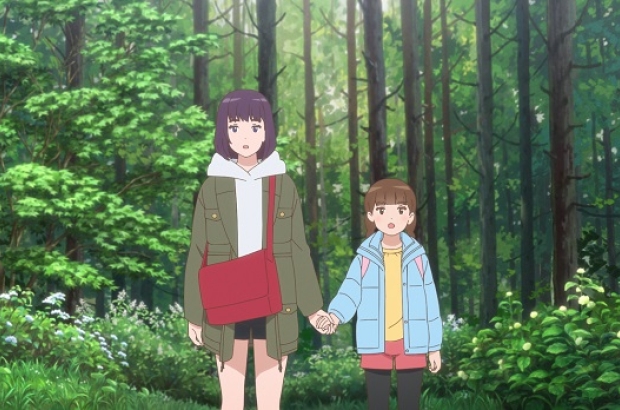- Daily & Weekly newsletters
- Buy & download The Bulletin
- Comment on our articles
What’s on this week: 16-22 February
Anima festival serves up a feast of home-grown and international animation films over the next couple of weeks. Screening the best recent short and feature movies for adults as well as children, it also honours contemporary Spanish animation. The festival will be fizzing with special events, festive happenings and pro masterclasses. In total, the programme boasts 154 shorts, 22 features and six short VR films. Pictured, international feature The House of the Lost Cape by Japanese director Shinya Kawatsura. 17-26 February, Flagey, Palace and Cinematek, plus cinemas in Flanders and Wallonia
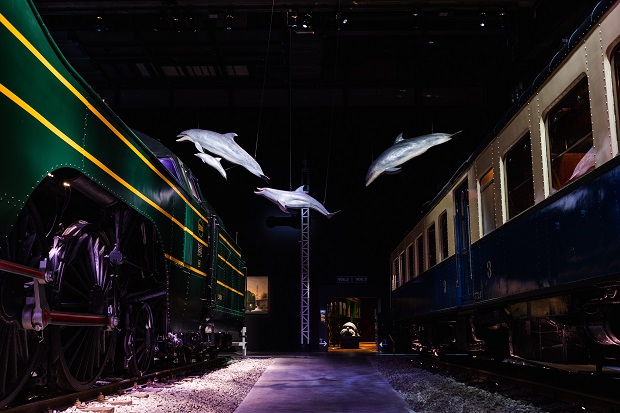
Train World takes visitors on a journey of exploration into the natural world with its new exhibition Animalia. The museum offers a poetic and scientific trip focusing on the preservation of our environment, especially from the prism of biodiversity and the climate. Renowned Belgian animal sculptor Pierre-Yves Renkin is the invited guest artist who shows off a series of animal works, displayed alongside the museum’s own collection. 17 February to 5 November, Train World, Place Princesse Elisabeth (Schaerbeek)
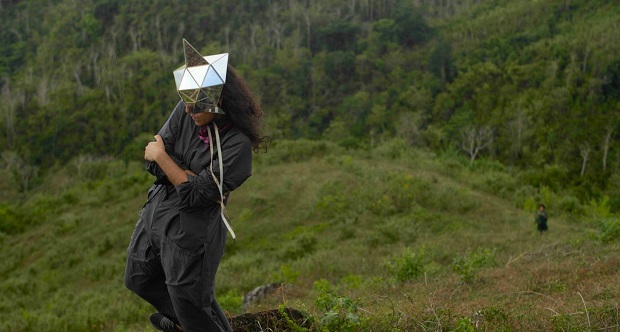
Stroll around Argos to see the entire story of Oriana, a film installation by Puerto Rican artist Beatriz Santiago Muñoz. It is loosely based on Monique Wittig’s 1969 novel Les Guérillères, the story of a war of the genders – literally – with women taking up arms to fight their male dominators. Santiago Muñoz’s piece is more abstract, with common objects turning into weapons and ancestral spirits watching over female rituals. This week a workshop shows children how to make the beautiful “mirror masks” that are seen in the film (pictured). Until 7 May, Rue du Chantier 13
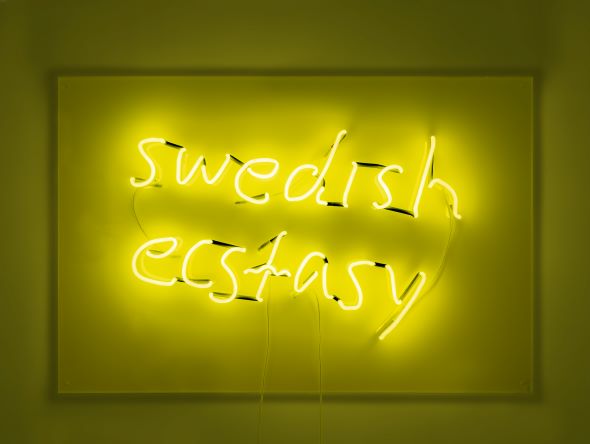
Bozar turns its gaze north to unveil the art and literature of Sweden in Swedish Ecstasy. Hilma af Klint, August Strindberg & other visionaries, an exhibition spotlighting the country’s spiritual life. This often overlooked aspect proves enlightening in introducing visitors to leading figures from the Swedish art scene, in particular the early abstract artist Hilma af Klint. Emmanuel Swedenborg, August Strindberg and Ernst Josephson are among other pioneers who explored mysticism and esoteric beliefs. They in turn inspired a generation of contemporary artists, including Carsten Höller, Christine Ödlund and Cecilia Edefalk. 17 February to 21 May, Rue Ravenstein 23
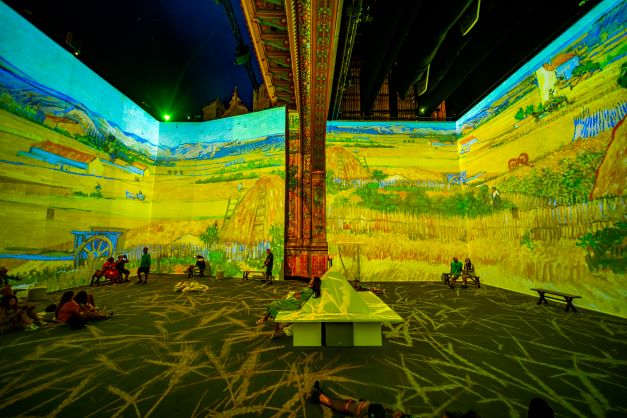
Bathe in the intense colours and evocative images of tortured artist Vincent Van Gogh in this latest immersive exhibition to be showing in the capital. See the Dutch painter’s iconic works come to life as they’re projected onto every corner of the exhibition space. As well as submerging you in his bright Mediterranean landscapes and still life paintings, the show traces key moments of Van Gogh life. Exhibition Hub has also developed a new enveloping space, ‘From Woodblocks to Van Gogh’, which shows off wood-cutting techniques, developed in China more than 1,000 years ago. From 18 February, Galerie Horta, Rue du Marché aux Herbes 116
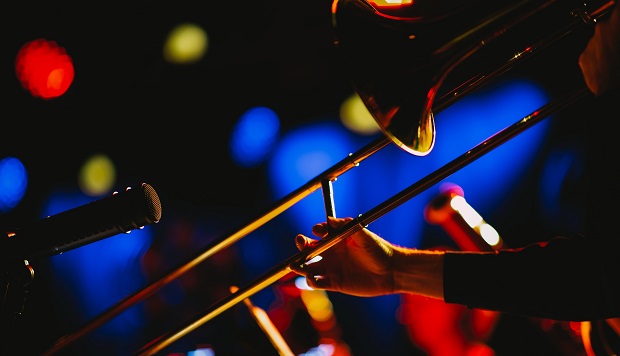
While there’s a bit of drums and bass on stage, the Trombone Summit is largely dedicated to the slide brass instrument that has been used for centuries not only for its musicality but because it can produce effects like thunder, or even be made to sound vocal. The Trombone Summit is unique in Belgium, bringing together all of the Brussels Conservatory’s jazz trombone section, both players and students. Entry to this lively concert is free, but try to book ahead. 19 February 20.30, The Music Village, Rue des Pierres 50
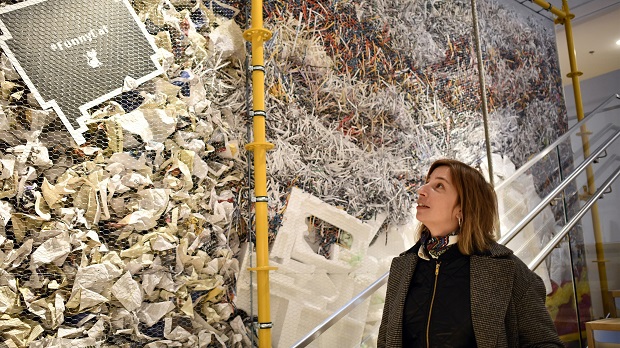
It’s not a new phenomenon, but it remains a major global challenge: The waste produced by humans is out of control. From quickly obsolete electronics to single-use plastics to fast fashion, mass consumerism is choking the planet. Throwaway: The History of a Modern Crisis looks at the ecological impact, Europe’s efforts to combat it and if we as citizens can improve the situation. Hosted by the House of European History, which is always free of charge, the public opening includes tours and a concert played on homemade instruments. 18 February to 14 January, Parc Léopold, Rue Belliard 135
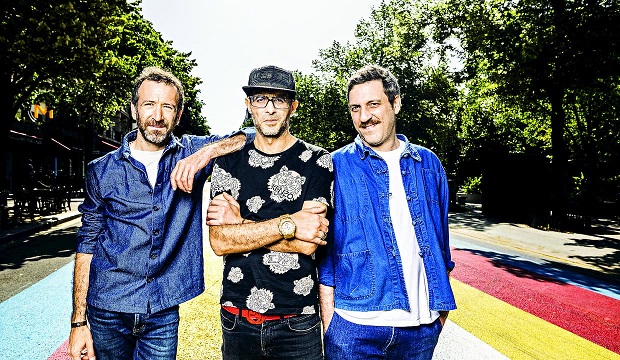
People, you are lucky there are still tickets to Acid Arab at AB, so pick one up to see this trio of dudes who mix Eastern traditions with Western electronics. They hail from Paris but collaborate with musicians from across the Arab world. It is one memorable cross-cultural dance bash. 17 February 21.00, Ancienne Belgique, Boulevard Anspach 110
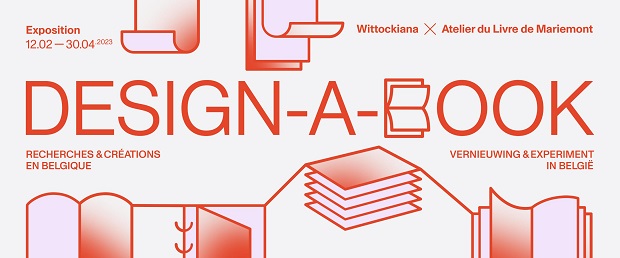
Despite the arrival of the digital age, books remain a central part of our culture and education. Throughout history, their look and feel has changed, whether in the binding or the typography. The exhibition Design-A-Book explains the intricate process that transforms a typed-up manuscript into a voluminous book. A presentation of 50 works, chosen by a jury of experts, showcase the evolution of contemporary book designs over the last five years. Until 30 April, The Wittockania, Rue du Bemel 23 (Woluwe-Saint-Pierre)
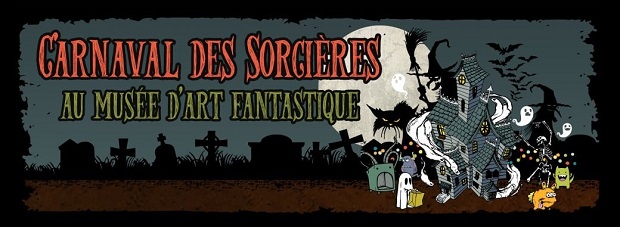
Children and families are invited to join in the Carnival celebrations at the Museum of Fantastic Art. A unique collection is on display for a spooky experience, including a small train for rides and an enigma game, which will take visitors into a mysterious world where witches and mysteries abound. 18 February to 5 March, 14.00-17.00, Museum of Fantastic Art, 7 Rue Américaine

Book now It’s another double bill for the February edition of The Schuman Show! After a short winter break, Brussels’ satire sketch show is back with all the latest EU gossip. Catch up on what’s happening in the bubble via witty monologues, absurd theatrical sketches and foot-tapping tunes. 23 & 24 February 20.30 (doors open 19.30), Espace Lumen, Chaussée de Boondael 136 (Ixelles)
Outside Brussels
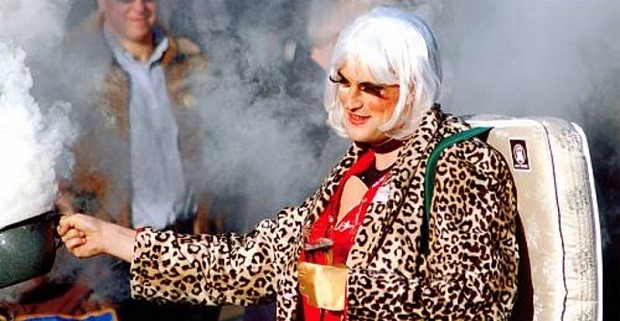
Carnival celebrations ring out in corners of the country as beloved local folklore festivities come alive after a few dark years of Covid restrictions. For events south of the country, check out Visit Wallonia’s site dedicated to the season’s parades and gatherings. Festivities in Binche are the most famous of the bunch, and recognised by Unesco for their codified ceremonies that have been entertain crowds for hundreds of years. Meanwhile, the Flemish town of Aalst, (also Unesco ranked), is prepping for three days of pre-Lent activities: a procession and party on Sunday; parade and Gilles’ broom dance on Monday; cross-dressing Day of the Voil Jeanetten on Wednesday (pictured). Binche 19-21 February; Aalst 19-22 February
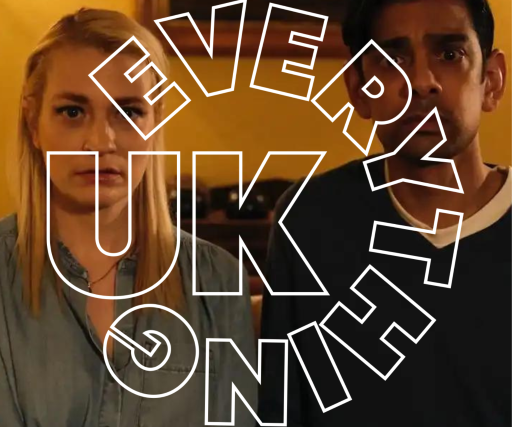
Popular British culture is centre-stage at the Everything UK festival in Ghent. Alongside the UK invasion of live artists is the screening of 10 British films, including festival opener, Klokkenluider (Dutch for whistleblower) at Sphinx Cinema on 23 February. The British film is set in Belgium, where director Neil Maskell lives, and stars Tom Burke and Jenna Coleman. The opening celebrations continue on 24 February with a five-hour DJ set by Mr Scruff and Liquid Brother at Vooruit. 23 February to 27 April, multiple venues in Ghent
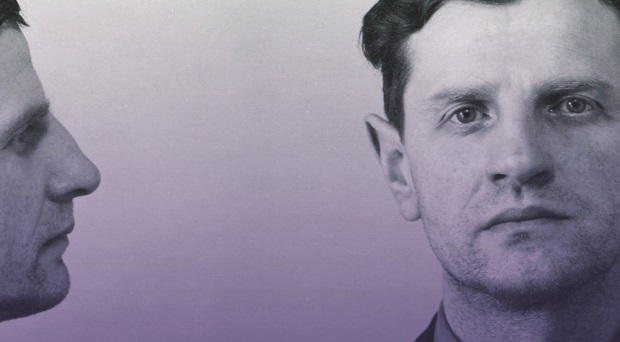
Gays and lesbians were one of the groups targeted by the Nazis, leading to innumerable instances of torture, death and imprisonment that would last long after the end of the Second World War. The Kazerne Dossin Holocaust museum is hosting Homosexuals and Lesbians in Nazi Europe, an exploration of this history, which saw gays going underground to escape the camps, including in Belgium, the Netherlands and France, from where they were deported. It was the Nazis who gave the LGBTQ community the pink triangle – once a badge to instil shame, now a proud symbol of a long-suffering people. 16 February to 10 December, Goswin de Stassartstraat 153, Mechelen
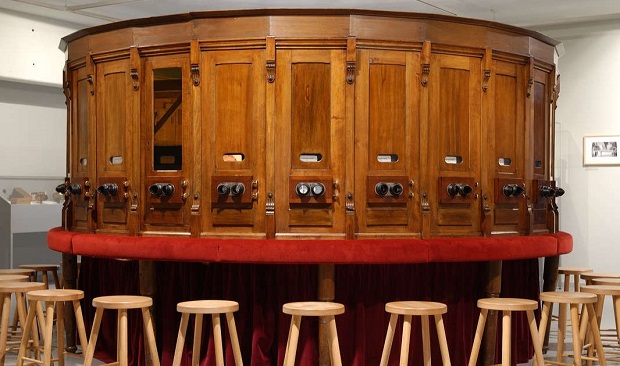
The FoMu photography museum launches three new shows. British-Kenyan artist Grace Ndiritu reimagines the FoMu collection in light of a rapidly changing world, putting “spiritual technology” at the centre and incorporating the newly renovated Kaiserpanorama, a historical amusement sporting 25 lenses through which visitor can see 3D images created from photographs (pictured). Also at the museum is a show of work by Magnum photographer Susan Meiselas, who always interacts with the subjects of her media shots, and When the Body Says Yes, an immersive exhibition by Dutch artist Melanie Bonajo, who says that touch can be a powerful remedy for loneliness. 17 February to 4 June, Waalsekaai 47, Antwerp
Photos: Oriana © Beatriz Santiago MuñozDaniel Youssef, Neon writing ’Swedish Ecstasy’ 2022, courtesy of the artist; Trombone Summit © Markus Spiske; Throwaway © Ypunto Ending, House of European History; Homosexuals © Coll. Landesarchiv, Berlin; FoMu © Guy Voet












